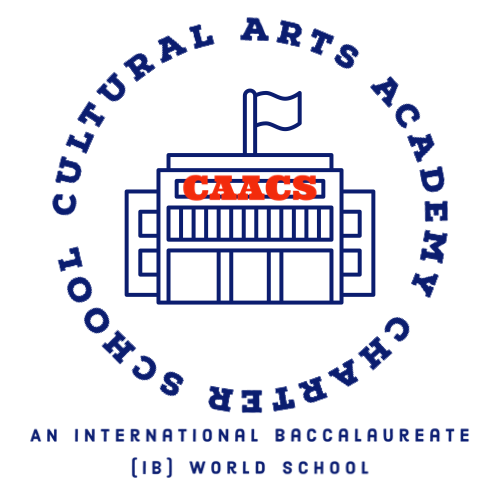Inquiry in Second Grade
Our second graders learn through the lens of six thematic inquiry units throughout their school year.
Inquiry Unit Theme One: How we express ourselves
Central Idea: Stories inspire us and help us understand the world around us.
Sample Guided Inquiry question asked by scholar: I wonder how Helen Keller’s life story is similar to a moment in my own life?
Summative assessment: Students create a summary of a biography of a person of their choice. Scholars then write a personal narrative based on a small moment in their own life that they thought connected to the biography they read.
Key Concepts: Form, Perspective, Reflection
Subject Focus: Social Studies, Reading, Writing
Learner Profile Traits: Communicator, Reflective, Risk- Takers
ATL Skills: Reading (Communication Skill), Comprehension (Thinking Skill), Analysis (Thinking Skill), Writing (Communication Skill)
Lines of Inquiry:
- People tell their stories in different ways.
- Biographies are the stories of people’s lives.
- Stories of others can help us write about our own personal experiences.
Inquiry Unit Theme Two: Where we are in place and time
Central Idea: Simple machines have been useful then and now.
Sample Guided Inquiry question asked by scholar: I wonder how pulleys work then and now?
Summative assessment: Students answer questions about the simple machine of their choice in writing, create a 3D model, and present to the class.
Key Concepts: Change, Function, Connection
Subject Focus: Science, Reading, Writing
Learner Profile Traits: Inquirer, Thinker, Knowledgeable
ATL Skills: Formulating Questions (Research Skill), Comprehension (Thinking Skill), Writing (Communication Skill), Fine Motor (Self-Management Skill), Time Management (Self-Management Skill)
Lines of Inquiry:
- Force sets objects in motion.
- Simple machines can be defined by certain attributes.
- Tools and technology become more complex over time.
Inquiry Unit Theme Three: How the world works
Central Idea: There are different forms of matter that we interact with.
Sample Guided Inquiry question asked by scholar: I wonder how liquid matter changes to solid matter?
Summative assessment: Scholars write a paragraph that explains what happens when physical matter changes states and then they explain with a poster what they observed in the example that they did at home.
Key Concepts: Form, Function, Causation
Subject Focus: Science, Reading, Writing
Learner Profile Traits: Communicator, Knowledgeable
ATL Skills: Planning (Research Skill), Observing (Research Skill), Recording Data (Research Skill), Interpreting Data (Research Skill), Presenting (Communication Skill)
Lines of Inquiry:
- Things are made of matter.
- We classify matter.
- We measure matter.
- Matter changes states.
Inquiry Unit Theme Four: Who We Are
Central Idea: We are given rights but are also required to follow rules and fulfill responsibilities.
Sample Guided Inquiry question asked by scholar: TBD
Summative assessment: TBD
Key Concepts: Responsibility, Causation, Reflection
Subject Focus: Social Studies, Reading, Writing
Learner Profile Traits: Principled, Reflective, Caring, Balanced
ATL Skills: TBD
Lines of Inquiry:
- Personal accountability helps build responsibility.
- There are outcomes that come from our choices we make.
- Our society provides us with certain rights.
- Our society expects us to follow certain rules.
Inquiry Unit Theme Five: How we organize ourselves
Central Idea: Communities develop differently depending on their location.
Sample Guided Inquiry question asked by scholar: TBD
Summative assessment: TBD
Key Concepts: Form, Perspective, Connection
Subject Focus: Social Studies, Math, Reading, Writing
Learner Profile Traits: Thinkers, Communicators, Balanced
ATL Skills: TBD
Lines of Inquiry:
- Suburban communities have unique features.
- Urban communities have unique features.
- Rural communities have unique features.
Inquiry Unit Theme Six: Sharing the planet
Central Idea: Habitats need protection for plants and animals to thrive.
Sample Guided Inquiry question asked by scholar: TBD
Summative assessment: TBD
Key Concepts: Connection, Change, Responsibility
Subject Focus: Science, Reading, Writing
Learner Profile Traits: Caring, Thinker, Principled
ATL Skills: TBD
Lines of Inquiry:
- Habitats can be defined and sorted into categories.
- There are interdependent relationships in ecosystems.
- Humans interact with geographic areas in both harmful and helpful ways.
- Children can take action to protect habitats.
